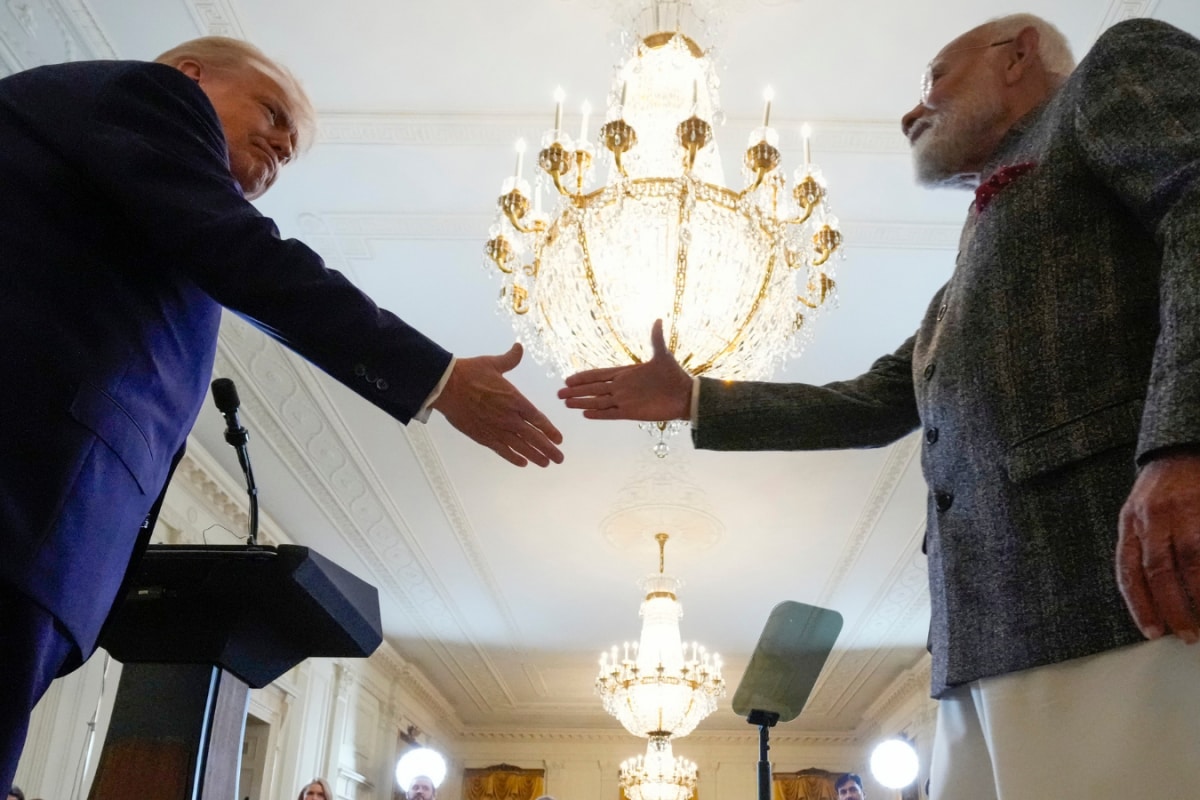

Prime Minister Narendra Modi's recent 35-minute phone call with US President Donald Trump, following the G7 summit in Canada, has drawn attention not only for its content but also for what it implies about India's strategic priorities. While the two leaders discussed critical issues, including counter-terrorism and regional security, Modi's decision to decline Trump's invitation for a US visit, in favor of proceeding to Croatia, signals a nuanced shift in India's diplomatic approach.
According to Foreign Secretary Vikram Misri, the phone call was initiated at Trump's request after the leaders missed their planned in-person meeting on the sidelines of the G7 Summit. During the call, Modi briefed Trump on India's recent counterterrorism actions, specifically "Operation Sindoor," launched in response to the Pahalgam terror attack. Modi emphasized that India views terrorism as an act of war and clarified that there had been no discussions on trade or third-party mediation regarding the Kashmir issue with Pakistan. He reiterated India's long-standing position of not accepting any form of mediation on this matter.
While Trump expressed support for India's counter-terrorism efforts and invited Modi to visit the US, the Indian Prime Minister politely declined, citing prior commitments. This decision gains significance when viewed in the context of Modi's subsequent trip to Croatia, marking the first-ever visit by an Indian Prime Minister to the Balkan nation.
India's engagement with Croatia, an EU member since 2013 and part of the Eurozone since 2023, is driven by several strategic objectives. Ambassador of India to Croatia, Arun Goel, noted that Modi's visit is crucial for securing a favorable Free Trade Agreement (FTA) with the European Union. Given India's aim to become the world's third-largest economy, increasing exports to the EU is a key priority. Croatia's role as an EU member can facilitate a more balanced and beneficial FTA for India.
Beyond trade, the visit underscores India's commitment to strengthening its relationship with EU partners and diversifying its geopolitical alliances. Several agreements are expected to be signed during the visit, focusing on science and technology, agriculture, culture, and education. These agreements aim to foster collaboration, knowledge exchange, and people-to-people connections between the two nations.
Moreover, Croatia's understanding of India's security concerns, stemming from its own experiences with extremism and terrorism, makes it a reliable partner in India's fight against terrorism. The solidarity expressed by Croatians following the Pahalgam attack and their appreciation for India's "measured and restrained response" through Operation Sindoor highlight the strong bond between the two countries.
Modi's decision to prioritize the Croatia visit over a potential stopover in the US can be interpreted as a strategic move to balance India's relationships with global powers. While the US remains an important partner, India is keen on fostering stronger ties with other regions and blocs, including the EU. This approach aligns with India's long-standing foreign policy principle of maintaining strategic autonomy and diversifying its partnerships to promote its national interests.